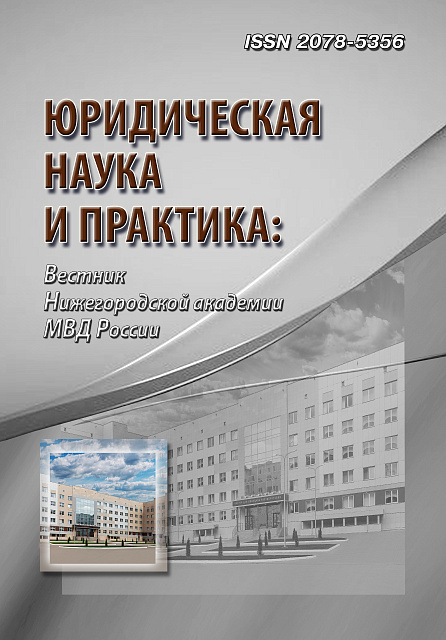Taking into account the doctrine of an unfinished crime, the limits of legality of conducting operational-search activities are determined on the basis of information about the signs of an unlawful act being prepared that has become known to the bodies carrying out operational-search activities, provided that there is insufficient data to initiate a criminal case. It has been established that, having confirmed the information about a person preparing to commit a crime of minor or medium gravity, further operational-search activities are illegal, since these actions are not recognized as criminally punishable, and therefore do not create the need to solve the tasks of operational-search activities. The author has found that one of the legislatively provided forms of prevention by operatives of a possible occurrence of socially dangerous harm, by persons creating conditions for committing crimes of minor or medium gravity, is the announcement of an official warning about the inadmissibility of such actions.
operational investigative activities, grounds for conducting operational investigative activities, preparation for a crime, unfinished crime, categories of crime, official warning
1. Goryainov K. K., Epifanov S. S., Koshelyuk B. E. et al. Scientific and practical commentary to the Federal Law “On operational-search activity” (by article). Moscow: Prospect Publ., 2023. 128 p. (In Russ.)
2. Zakhartsev S. I., Ignashchenkov Yu. Yu., Salnikov V. P. Operational search activities in the 21st century. Moscow: Norma Publ., 2015. 400 p. (In Russ.)
3. In the case of verifying the constitutionality of certain provisions of the federal law “On operational-search activities” based on the complaint of citizen I.G. Chernova: ruling of the Constitutional Court of the Russian Federation no. 86–O of Jule 14., 1998. Collection of legislative acts of the RF, 1998, no. 34, art. 4368. (In Russ.)
4. Shkabin G. S. Criminal-legal support of operational-search activity: theoretical-applied and legislative aspects. Dissertation... candidate of legal sciences. Moscow, 2018. 409 p. (In Russ.)
5. Judgment Yakovlevsky District Court of Belgorod Region no. 1–104/2022 1– 2/2023 of the dated December 13, 2023 in case no. 1–104/2022. Official website of judicial and regulatory acts of the Russian Federation. URL: //sudact.ru/regular/doc/4kKz0uySSPP/ (accessed 10.09.2024). (in Russ)
6. Russian criminal law: Course of lectures / vol. A. Bushueva, Yu. V. Golik, A. I. Dolgova [and other]. Vladivostok: Far Eastern University Publishing House, 1999. 602 p. (In Russ.)
7. Rarog A. I. Qualification of crimes by subjective features. Saint Petersburg, 2003. 279 p. (In Russ.)
8. Korneeva A. V. Theoretical foundations of crime qualification: a tutorial. Moscow: Prospect Publ., 2023. 144 p. (In Russ.)
9. On judicial practice in murder cases (Article 105 of the Criminal Code of the Russian Federation): Resolution Plenum of the Supreme Court of the Russian Federation no. 1 of January, 1999. Access from the reference legal system “ConsultantPlus” (accessed 05.09.2024). (In Russ.)
10. In the case of verifying the constitutionality of the provisions of paragraph 7 of Article 16 of the Law of the Russian Federation “On the Status of Judges in the Russian Federation” and part one of Article 9 of the Federal Law “On Operational Investigative Activities” in connection with the complaint of citizen I.V. Anosov»: resolution of the Constitutional Court of the Russian Federation no.12-P of June, 2011. Access from the reference legal system “ConsultantPlus” (accessed 15.09.2024). (In Russ.)
11. Ruling of the Supreme Court of the Russian Federation on the case no. 82-KGPR14-2 oh June, 2014. Access from the reference legal system “ConsultantPlus” (accessed 15.09.2024). (In Russ.)












